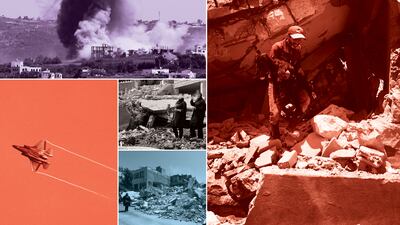I was in office as president of Lebanon’s Council of Ministers when Israel last invaded, in July 2006, causing death and destruction. Our main concern then was that the war would also damage the fabric of Lebanese society. The trauma caused by such brutality eventually divided the country and dented the fundamental principles of coexistence upon which it was built. Another war will destroy these principles, with repercussions across the whole region.
Physical reconstruction is always possible after a devastating war, but the political impact and the ideas that emerge from it are far more dangerous and difficult to reverse. At stake is what the late Pope John Paul II described as Lebanon’s mission: to demonstrate that coexistence and conviviality are possible among different religions, not just in Lebanon but in the wider region. Lebanon sends the world a message of immense significance: that religion brings people together rather than separating them.
Lebanon cannot survive another war; the Lebanon we know could disappear and a far more dangerous entity may emerge. The prosperity of Lebanon is in its example that Muslims and Christians can live together, that they share a common history and a common future. It is not about numbers but about roles – the whole adds up to more than the sum of its parts because of the roles played by each community. The Christians of Lebanon, who were open to the West and the Arab world, built important educational, medical, cultural and business institutions from which the entire region benefited.
We are still trying to heal the wounds from the 2006 war and the prospect of another is making things even worse. Some are calling for separation and partition, with extremists and pessimists influencing the debate.
Circumstances in 2006 were different. We survived that war because Lebanon had a functioning state with a president, a strong and leading government as well as an elected parliament. Most importantly, we managed to unite the country in solidarity with the victims. We had strong Arab and international support, including at the UN. Our opinions were sought, and we managed to stop the war through an Arab initiative and international involvement. The Arab initiative at the UN was timely and effective, a shining example of Arab co-operation. UN Security Council Resolution 1701 that stopped the war was a feat of Arab and international co-operation, which is desperately needed now for Gaza.
After the fighting stopped in mid-August 2006, there was a rush to help Lebanon, mainly from the Gulf states but also from international initiatives. People were back in their villages in South Lebanon within two weeks, the incentive being direct grants for the reconstruction of their homes. Schools were open by November, a couple of months after the cessation of hostilities. The government also played a leading role in the rehabilitation of the country. A summit of spiritual leaders organised by the Maronite Patriarchate played a vital part in preserving unity in the country and in supporting the people of South Lebanon. The show of national unity and co-operation was heart-warming. The economy picked up and we had growth afterwards for several years.
It is only after the dust settled that the political consequences emerged. Hezbollah, after fully consenting to Resolution 1701 in the Council of Ministers, reversed its position and openly opposed the Seven-Point Plan that ended the hostilities. Assassinations continued at regular intervals. Occupation of Beirut’s main business district in November 2006, followed by an attack on the city in May 2008, further damaged the economy. A coup against the Saad Hariri government in January 2011 also dented our relations with some Arab countries and the international community. All this and the fallout from the Syrian civil war ultimately led to the current economic collapse and a paralysing political crisis.
Lebanon has never been more divided over the role of Hezbollah versus that of the state. State institutions are crumbling; for the third time in about 15 years we are without a president and an effective government and our parliament is blocked. We are still dealing with the consequences of the Syrian war with almost one third of the population being Syrian refugees. It is difficult to imagine how Lebanon will survive another war without international help, given that its institutions are paralysed and its people polarised. The country is also isolated; we no longer have the level of Arab and the international support we had before.
A positive result of wars is when people, confronted by its horrors, decide to come to their senses. Wars can trigger a re-evaluation of ideas and institutions as well as a discussion about how to avoid further hatred and destruction. We saw this in post-war Europe where this process led to the EU.
The horrors we have seen so far in Gaza are enough to push us all in in the right direction. All parties should come back to their senses and figure out a way to a better future. Justice for the Palestinians should be at the heart of this move, in which they are entitled to have their independent and sovereign state.
Western powers, especially the US, have an important role to play. They must re-evaluate their shameful support of Israel’s war, stop supporting a self-destructive adventure that can threaten the whole regional and international order, and implement a ceasefire as soon as possible.
The outcome of the Gaza war should not lead to more wars. We should all go back to the drawing board and create peace in the Middle East for the sake of the next generation. In the meantime, all efforts should focus on avoiding a destructive war on Lebanon.













